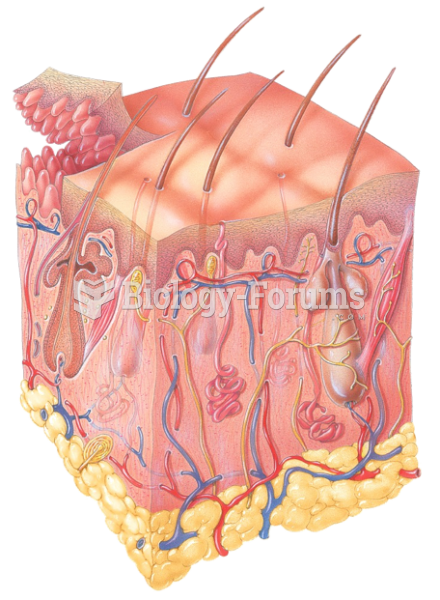|
|
|
Women are 50% to 75% more likely than men to experience an adverse drug reaction.
More than 50% of American adults have oral herpes, which is commonly known as "cold sores" or "fever blisters." The herpes virus can be active on the skin surface without showing any signs or causing any symptoms.
Signs of depression include feeling sad most of the time for 2 weeks or longer; loss of interest in things normally enjoyed; lack of energy; sleep and appetite disturbances; weight changes; feelings of hopelessness, helplessness, or worthlessness; an inability to make decisions; and thoughts of death and suicide.
In Eastern Europe and Russia, interferon is administered intranasally in varied doses for the common cold and influenza. It is claimed that this treatment can lower the risk of infection by as much as 60–70%.
In most climates, 8 to 10 glasses of water per day is recommended for adults. The best indicator for adequate fluid intake is frequent, clear urination.
 Stand facing the side of the table and apply cross-handed stretches for the subcutaneous fascia. ...
Stand facing the side of the table and apply cross-handed stretches for the subcutaneous fascia. ...
 Apply deep effleurage to the thigh from knee to superior thigh. Cover anterior, medial, and lateral ...
Apply deep effleurage to the thigh from knee to superior thigh. Cover anterior, medial, and lateral ...





